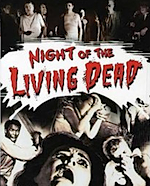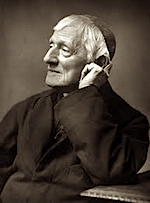By PAUL A. RAHE [Chronicle of Higher Education] – What would it take to elicit servility from an intellectual? Money would help, of course. Just ask the Harvard professors who founded the Monitor Group—which for a time shilled for Col. Muammar el-Qaddafi in return for a quarter of a million dollars a month. And query the administration at the London School of Economics, recipient of a £1.5-million pledge from a foundation run by Seif, the tyrant’s notably generous, charming, and debonair son and presumed heir, who earned a Ph.D. at the school with a dissertation alleged by some to have been at least partly plagiarized (LSE is investigating those allegations).
Continue reading “· Obscure eggheads: ‘ If power corrupts, then lack of power corrupts absolutely’.” »
By WILLIAM TUCKER [The Wall Street Journal] – None of this amounts to “another Chernobyl.” The Chernobyl reactor had two crucial design flaws. First, it used graphite (carbon) instead of water to “moderate” the neutrons, which makes possible the nuclear reaction. The graphite caught fire in April 1986 and burned for four days. Water does not catch fire.
Continue reading “· The Japanese choice: panic or progress?” »
By DAVID L. ULIN [Los Angeles Times] – Earthquakes are the expression of a living planet, the earth’s way of re-inventing itself. But while this knowledge may be consoling in the abstract, it’s not very useful in the face of a catastrophe such as last week’s quake and tsunami in Japan. At these times, we need real consolation: food and water, emergency services and rescue … and, David L. Ulin suggests, literature. Ulin is the author of The Myth of Solid Ground: Earthquakes, Prediction and the Fault Line Between Reason and Faith.
For as long as we have experienced seismicity, we have written about it, going back to the Book of Acts. Below are nine works (one for each of this most recent earthquake’s points of magnitude) that channel both our terror and our awe.
Continue reading “· Nine books on ‘quakes that will fall off your shelves.” »
By JOSEF OEHMEN [Morgsatlarge] – This post is by Dr Josef Oehmen, a research scientist at MIT, in Boston…I asked him to write this information to my family in Australia, who were being made sick with worry by the media reports coming from Japan. I am republishing it with his permission.
This is his text in full and unedited. It is very long, so get comfy.
I am writing this text (Mar 12) to give you some peace of mind regarding some of the troubles in Japan, that is the safety of Japan’s nuclear reactors. Up front, the situation is serious, but under control. And this text is long! But you will know more about nuclear power plants after reading it than all journalists on this planet put together.
Continue reading “· Solid facts for shaky journalists writing about seismic catastrophes.” »
Perhaps by MICHAEL GLOVER [Bow-Wow Shop] – The American poet and critic Stanley Burnshaw once wisely remarked: ‘Death transforms the poet into his true self’. After death the work remains ‘henceforth untouchable’. We agree with Burnshaw, heartily. We also think that he didn’t quite spell it out in the fullness that it deserved, this profound truth that he was telling.
The true glory is that after death there is an absolute division, an unbridgeable gulf, between the man who grunts and snivels and prevaricates and procrastinates, and the writer who prophesies. Continue reading “A cure for poets facing the ‘disabling embarrassment of being alive’.” »

Peacemaker?
By THOMAS J. DiLORENZO [The Independent Review] – The civil society of the American West in the nineteenth century was much more peaceful than American cities are today, and the evidence suggests that in fact the Old West was not a very violent place at all. History also reveals that the expanded presence of the U.S. government was the real cause of a culture of violence in the American West. If there is anything to the idea that a nineteenth-century culture of violence on the American frontier is the genesis of much of the violence in the United States today, the main source of that culture is therefore government, not civil society….
The culture of violence in the American West of the late nineteenth century was created almost entirely by the U.S. government’s military interventions, which were primarily a veiled subsidy to the government-subsidized transcontinental railroad corporations. As scandals go, the war on the Plains Indians makes the Credit Mobilier affair seem inconsequential.
Continue reading “· Violence in the Old West? Only when the government marched in.” »
By D. BALASUBRAMANIAN [The Hindu] – Because science is human endeavour at the boundaries or frontiers of the unknown, scientists recognize that any new knowledge that is generated can only be assessed and evaluated by other practitioners at these boundaries, namely, their peers. Thus, in addition to undertaking their own research, scientists are under an unwritten moral obligation to accept the task of reviewing the work of their peers. The reviewers are critics but not adversaries, and it is only when they reach consensus with the proponents of the research can a scientific advance be published and made known to the world. Peer review does have its share of minor shortcomings in its actual practice.
Continue reading “· The bad taste of acrimony in a debate over genetically-modified food.” »
By DOUGLAS A. McINTYRE [24/7 Wall St.] – IMF researchers believe that high food prices are a problem which will linger, at least in the foreseeable future. Bad weather is part of the reason. The growth is bio-fuels in another…
There is no solution that would bring food prices down in sight. As with any other major global problem, the world’s most powerful nations think they can find one. Economic power can reverse nearly any dangerous trend which threatens the world’s financial order and situations which menace global political stability. In the case of the food shortage, however, there is no amount of brain power, capital, or cooperation among nations that can break the cycle of the rising prices for agricultural commodities.
Continue reading “· Hungry for a little global warming?” »
 By JAMES PARKER [The Atlantic] – Twentieth-century man was already moaning and scratching his head; shambling along with bits falling off him; desensitized, industrialized, hollowed out, metaphysically evacuated—A crowd flowed over London Bridge, so many … Had some trash visionary produced a novel or play about the brain-eating hordes, or a vers libre epic of viral undeadness, it would have gone down rather well, at this point. And yet not until 1968, at the dawning of the Age of Aquarius, did the zombie as we know him really make the scene.
By JAMES PARKER [The Atlantic] – Twentieth-century man was already moaning and scratching his head; shambling along with bits falling off him; desensitized, industrialized, hollowed out, metaphysically evacuated—A crowd flowed over London Bridge, so many … Had some trash visionary produced a novel or play about the brain-eating hordes, or a vers libre epic of viral undeadness, it would have gone down rather well, at this point. And yet not until 1968, at the dawning of the Age of Aquarius, did the zombie as we know him really make the scene.
Look: there he is, out of focus and deep in the shot, in the fifth minute of George A. Romero’s Night of the Living Dead. He’s wandering through a cemetery, wearing a shabby blazer, with the air of a distracted groundskeeper. Continue reading “· ‘The Walking Dead’: Still dead, still ungrateful, still trucking.” »
By ANTHONY GRAFTON [The Daily Princetonian] – Every year, the numbers rise. The pools of applicants for Harvard, Princeton, Yale, Columbia and Penn regularly score massive increases, about which we duly boast on websites and in college dailies. Princeton boasts of having received over 27,000 applications this year, as if it’s an unquestioned good to be able to blight the hopes of 24,000 to 25,000 18-year-olds instead of 15,000 or 10,000. Meanwhile Harvard received 35,000, Brown 31,000 and Yale a mere 25,800.
Does anyone really know how to sift these masses of talented, intelligent 18-year-olds for the ones who will flourish at a particular school?…
Continue reading “· College admissions: Why blight the hopes of 10,000 kids when you can blight the hopes of 25,000?” »
 By ROBERT POLITO [Bookforum] – Imagine if the most cunning and cosmopolitan poet of our era—John Ashbery, say—were a progressive US senator from a small state far from Los Angeles, New York, or Washington, along the lines of Bernie Sanders. Envision, too, that this poet/politician hides out in the margins of his poems, such that his angle on any subject, philosophical, religious, or political, atomizes into irreconcilable fragments—except that he also writes fierce, polemical pamphlets, though often without signing his name to them, and maneuvers under threat of exposure and censure. Consider that he has no fixed abode; vanishes abroad, after the fashion of Valerie Plame, on obscure intelligence operations; might not be married to the woman who says she is his wife; and once memorialized his own experiences in a letter as “But I my self, who live to so little purpose.” Try to resolve these shadows before rumors slip into legend, and the upshot is someone like Andrew Marvell—The Chameleon, as Nigel Smith dubs him in his exhaustive, shrewd, wary new biography.
By ROBERT POLITO [Bookforum] – Imagine if the most cunning and cosmopolitan poet of our era—John Ashbery, say—were a progressive US senator from a small state far from Los Angeles, New York, or Washington, along the lines of Bernie Sanders. Envision, too, that this poet/politician hides out in the margins of his poems, such that his angle on any subject, philosophical, religious, or political, atomizes into irreconcilable fragments—except that he also writes fierce, polemical pamphlets, though often without signing his name to them, and maneuvers under threat of exposure and censure. Consider that he has no fixed abode; vanishes abroad, after the fashion of Valerie Plame, on obscure intelligence operations; might not be married to the woman who says she is his wife; and once memorialized his own experiences in a letter as “But I my self, who live to so little purpose.” Try to resolve these shadows before rumors slip into legend, and the upshot is someone like Andrew Marvell—The Chameleon, as Nigel Smith dubs him in his exhaustive, shrewd, wary new biography.
Continue reading “For Marvell, think Bernie Sanders with a growing ‘vegetable love’.” »
 By DIARMAID MacCULLOCH [Literary Review] – There is an industry of hagiography around [John Henry] Newman, which does not appear to be a great spontaneous upsurge among the Catholic faithful. In the past, saints emerged by acclamation: miracles happened, pilgrims flocked to their gravesides. Even lately, the same popular phenomenon happened in the case of Padre Pio, the charismatic Italian Capuchin who exhibited stigmata and who was already drawing crowds in his lifetime. Newman has not stirred comparable interest in the Catholic world, although one perceives vague gratification among English Catholics that an Englishman is now proceeding to sainthood. The description of him on the official website of the upcoming papal visit as ‘the much-loved Victorian theologian’ is an underwhelming encomium by the standards of St Patrick or St Francis of Assisi.
By DIARMAID MacCULLOCH [Literary Review] – There is an industry of hagiography around [John Henry] Newman, which does not appear to be a great spontaneous upsurge among the Catholic faithful. In the past, saints emerged by acclamation: miracles happened, pilgrims flocked to their gravesides. Even lately, the same popular phenomenon happened in the case of Padre Pio, the charismatic Italian Capuchin who exhibited stigmata and who was already drawing crowds in his lifetime. Newman has not stirred comparable interest in the Catholic world, although one perceives vague gratification among English Catholics that an Englishman is now proceeding to sainthood. The description of him on the official website of the upcoming papal visit as ‘the much-loved Victorian theologian’ is an underwhelming encomium by the standards of St Patrick or St Francis of Assisi.
Newman’s partisans have been hard put to find the necessary miracle to prove his sanctity, even in an age when, thanks to Pope John Paul II’s enthusiasm, saints have rolled off the Church’s production line in quantities that would win the envy of Henry Ford. Continue reading “· Newman’s quiet canonisation: no stigmata, please. We’re British.” »
By Rabbi ARTHUR GREEN [Jew School] – Last year, R. Art Green published a book, and R. Daniel Landes wrote a critical review of it in the Jewish Review of books. Green then responded to the review, and Landes responded to the response (on the same link). This is now Green’s next response. Underlying all of this are some interesting questions about the possibilities and limits of Jewish theology…
Dear Danny,
Let’s continue this public conversation, which is not over, in a face-to-face second person form, without the barrier of an intervening magazine. Internet interest will provide more than sufficient readership.
Continue reading “· Arthur Green and ‘the possibilities and limits of Jewish theology’.” »
By RUPERT NEATE [The Telegraph] – The European Commission said its agents had “reason to believe” that several unnamed companies across Europe “may have violated EU antitrust rules that prohibit cartels and other restrictive business practices”.

For official details, click here.
THE FORTNIGHTLY REVIEW is partnering with The Trollope Prize at the University of Kansas to publish the winner of the 2011 graduate essay competition. The graduate winner will receive a $2,000 award and a hardcover copy of a Trollope novel. In addition to publishing the winning graduate essay, The Fortnightly Review will also provide an additional modest honorarium.
The topic: “Trollope and His World.” According to the Trollope Prize website, submissions may include “essays focusing exclusively on the works of Anthony Trollope; comparative essays on Trollope and other writers; essays examining Trollope’s work and career in the larger context of Victorian history, culture and society; historical or literary essays on topics central to Trollope’s work and illuminated by his work; or essays on the reception of Trollope’s work or on his larger cultural influence. The work and career of Anthony Trollope must be a major focus of the essay.”
Continue reading “· The Trollope Prize. Deadline: 1 June 2011.” »

























